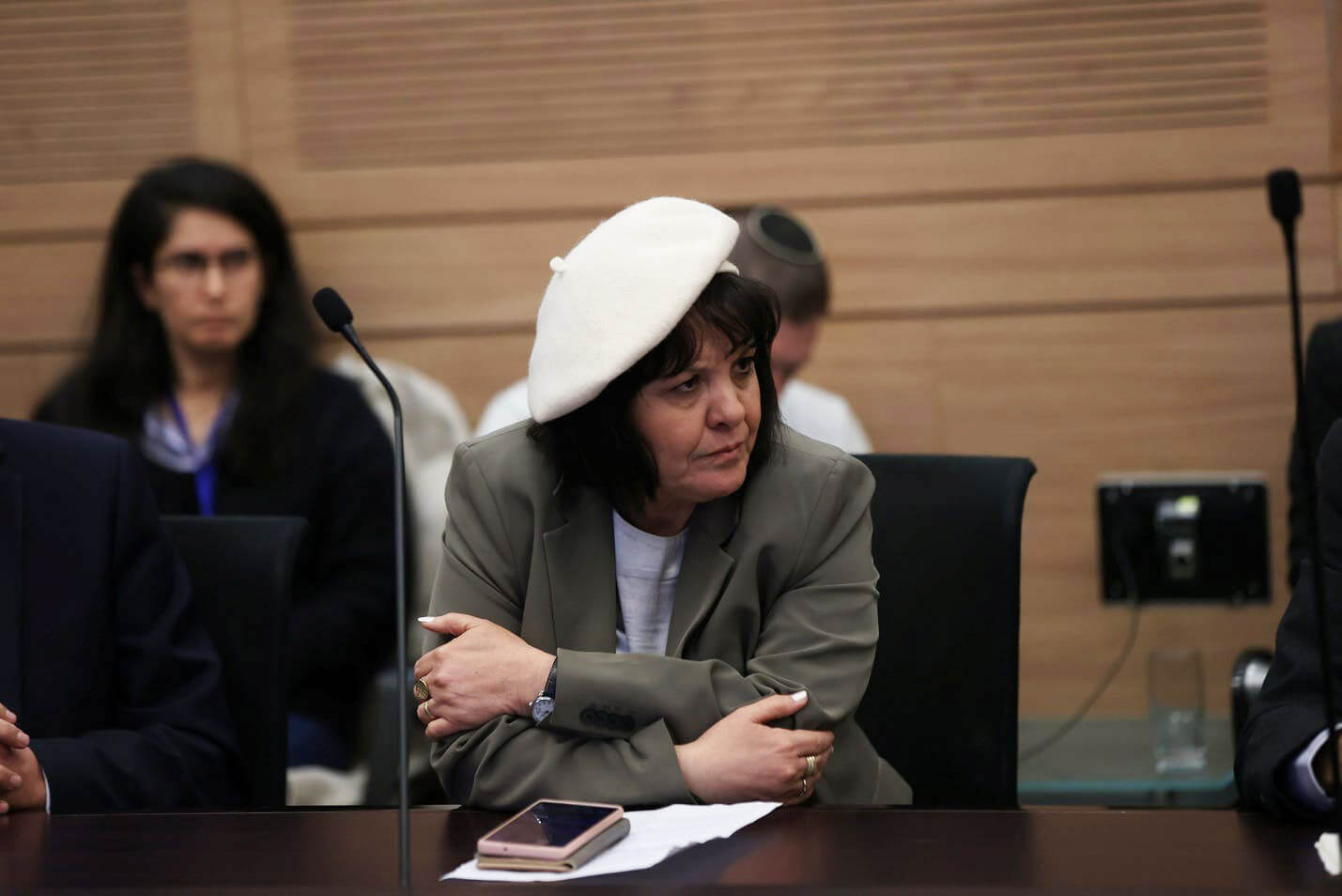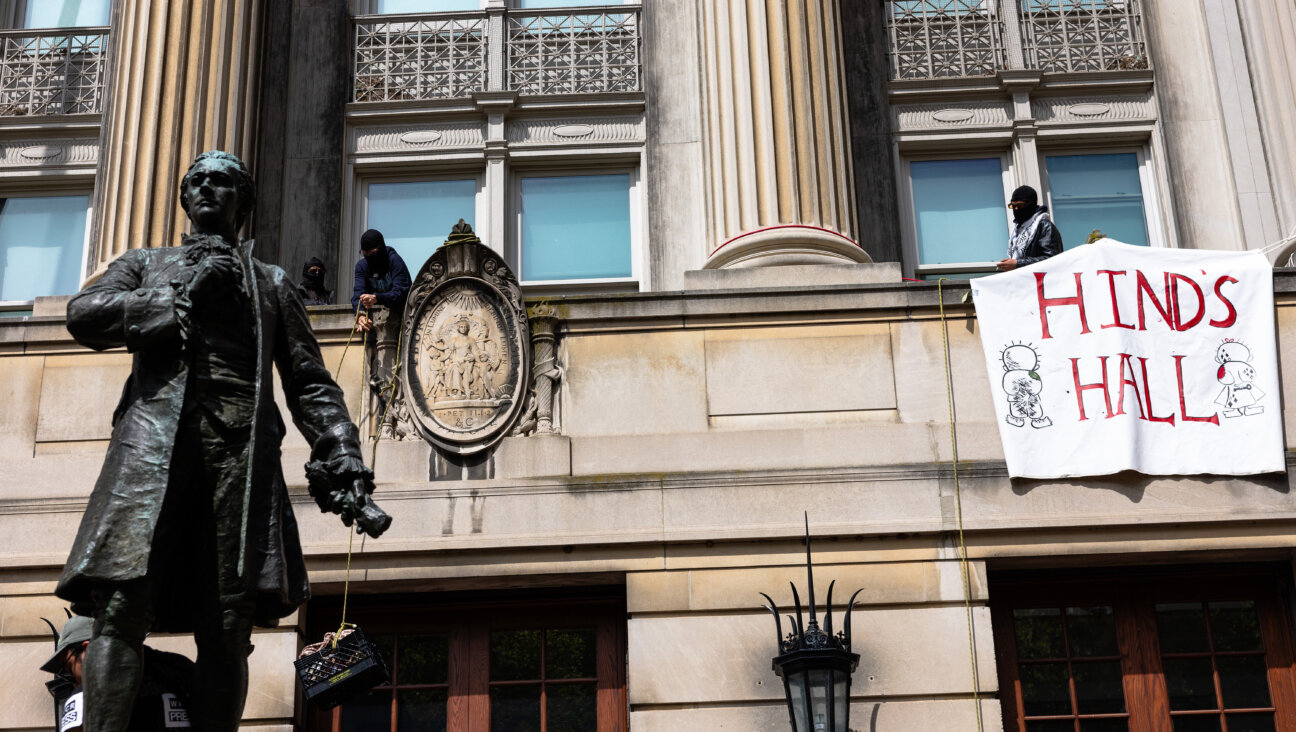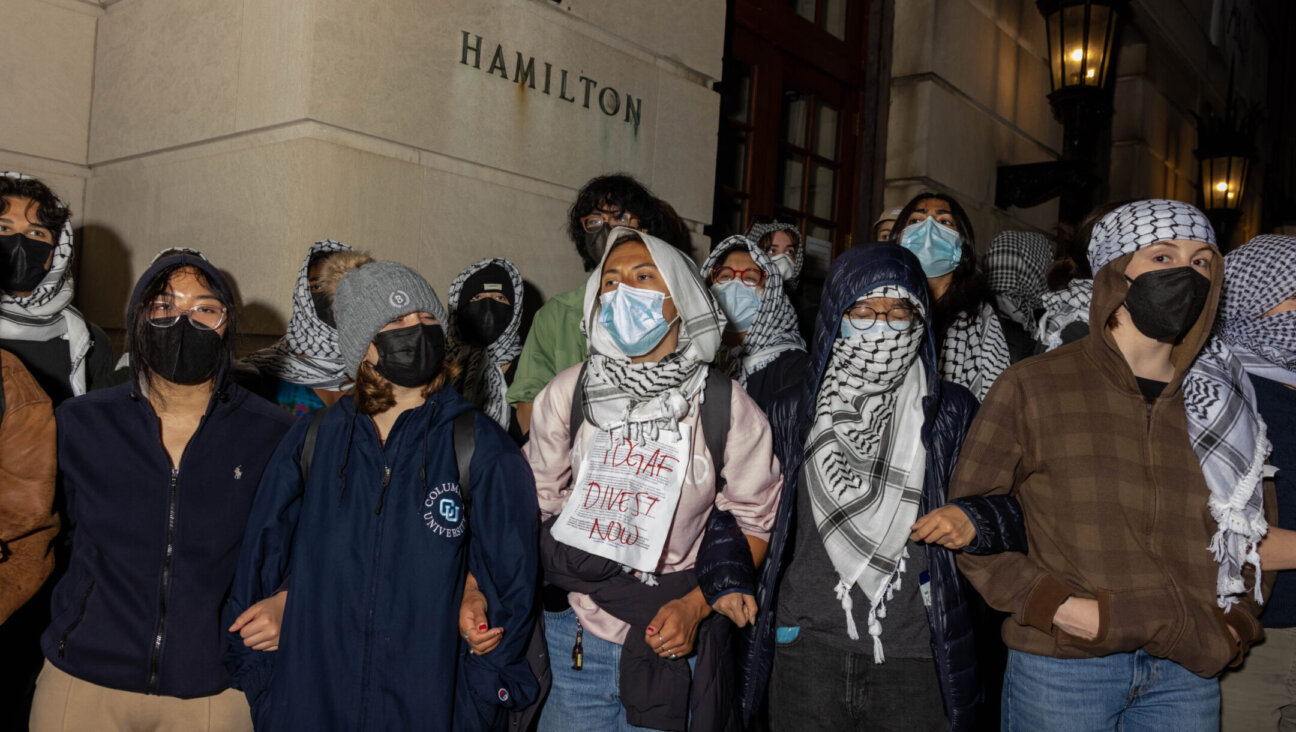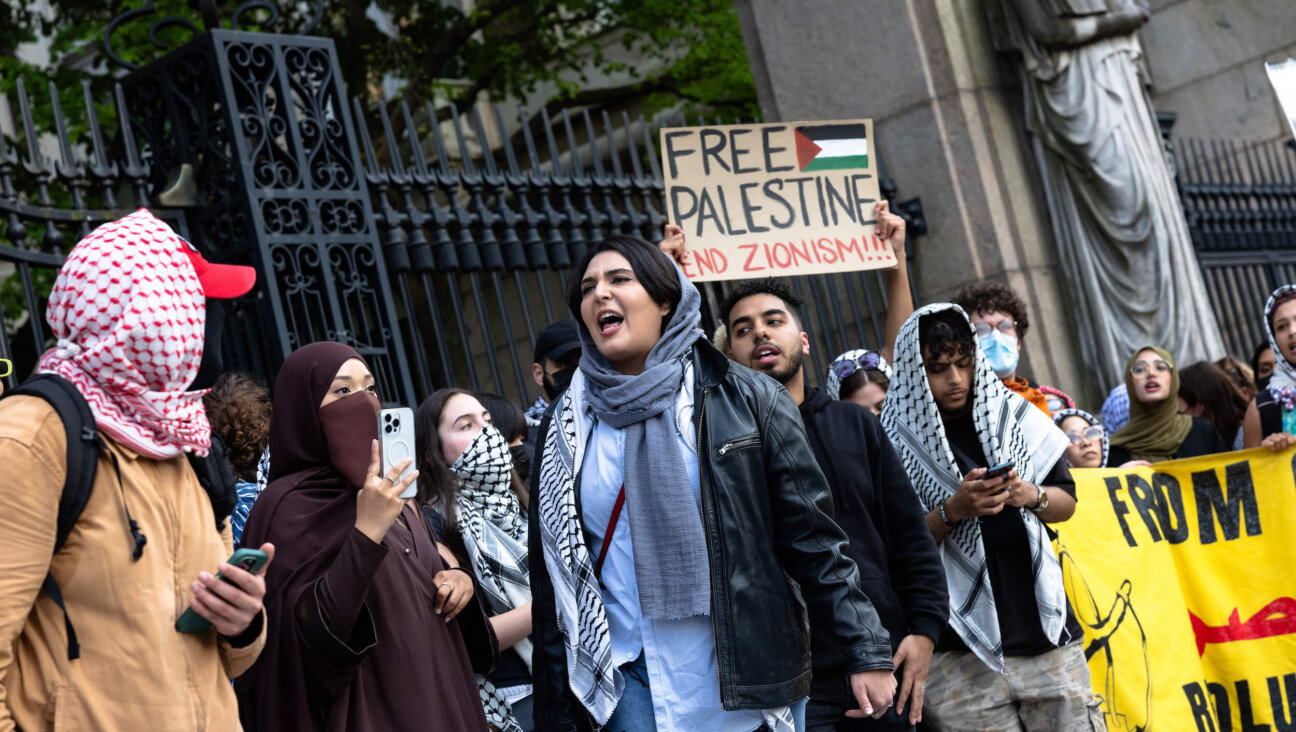Female mayor attacked by Haredi mob in religious Israeli city

Beit Shemesh Mayor Aliza Bloch at the Knesset in Jerusalem in January, 2023. Photo by Ohad Zwigenberg/Haaretz
This article originally appeared on Haaretz, and was reprinted here with permission. Sign up here to get Haaretz’s free Daily Brief newsletter delivered to your inbox.
Beit Shemesh Mayor Aliza Bloch was attacked by an ultra-Orthodox mob on Tuesday evening, with hundreds of extremists smashing her car windows and besieging her inside a school building until she could be rescued by police.
The incident, which was the second mob assault against the mayor in just under two months, came as she was visiting a recently constructed school belonging to the Vizhnitz Hasidic sect in the Ramat Beit Shemesh Bet neighborhood, known as a hotspot of religious extremism.
The mob set a fire to block a road outside the school and clashed with law enforcement, throwing stones and injuring one officer, according to Hebrew media reports.
עשרות חרדים הבעירו פחים ותקפו את רכבה של עליזה בלוך, ראש עיריית בית שמש, לאחר שהגיעה לאירוע חנוכת תלמוד תורה בעיר. שמשות רכבה נופצו והגלגלים נוקבו. לאחר כשעה, המשטרה חילצה את ראש העיר בכוחות מתוגברים, וללא נפגעים@HGoldich pic.twitter.com/tHw7HmFQSU
— כאן חדשות (@kann_news) August 29, 2023
Decrying the behavior of the “fanatics” in a video message, Bloch declared that while the attack was “very unpleasant…we cannot allow such behavior to affect us.”
תיעוד: הוונדליזם במקום, רכב ראש העיר מחולץ לאחר שניזוק בידי הקיצונים • צפו: pic.twitter.com/HcXERp8OUZ
— בית שמש חדשות (@shemeshnews) August 29, 2023
During Bloch’s visit, “several dozen extremists gathered, chanted slogans against the mayor and damaged her car. After some time, the mayor left the building through a back exit,” the municipality said in a statement.
“It should be emphasized that the rioters belong to an extreme group of sycophants who do not at all represent the vast majority of the city’s residents,” the municipality asserted. They further promised that “a handful of extremists cannot be allowed to disrupt the work routine and divert the focus from the development momentum of Beit Shemesh.”
In a text message to residents of the city, the mayor said that she had been contacted by President Isaac Herzog following the attack and that he had “strongly condemned the violence shown toward her.”
In a statement, Interior Minister Moshe Arbel of the ultra-Orthodox Shas party said that he had spoken with Bloch following the attack. Describing the violence as “a sick evil that must be uprooted,” the minister called on law enforcement “to act immediately to protect the safety of the elected officials in the local government.”
On Wednesday, the Beit Shemesh branch of the Likud party also condemned the incident. However, the party added that Mayor Block “cannot feed the crocodile and expect it won’t bite back.”
Last month, a similar mob attack Bloch as she walked through the neighborhood, throwing bottles and threatening her safety if she did not leave the insular enclave. She was defended by other ultra-Orthodox residents of the city, who interposed themselves between her and the crowd.
מהומה: ראש העיר בית שמש עליזה בלוך הגיע לפני זמן קצר לרחוב נהר הירדן בשכונת רמת בית שמש ב' והותקפה בידי עשרות חרדים קיצונים בקריאות "מנוולת תסתלקי מפה". pic.twitter.com/gpnRgffLp0
— שניאור בליניצקי - Shneor Bell (@shneorbell) July 17, 2023
When Aliza Bloch was elected mayor of Beit Shemesh in 2018, it ended a decade of Haredi Orthodox control over this small bedroom community of just over a 100,000 residents.
Bloch’s victory in municipal elections — making the veteran Modern Orthodox educator the first female mayor of Beit Shemesh — was held up as a victory for feminism by voters tired of what they saw as the city’s unwillingness to stand up for their rights.
Her Haredi opponents, meanwhile, demonized her, distributing fliers predicting that Bloch would close down religious schools and introduce bus service on Shabbat.
The site of numerous clashes between Haredi zealots and their secular and national-religious counterparts in recent years, the city — located in the scenic Judean hills midway between Jerusalem and Tel Aviv — has come to be considered both in Israel and abroad as something of a microcosm of Israel’s religious kulturkampf.
In the early 2010s, Beit Shemesh made international headlines when a group of ultra-Orthodox extremists began regular protests outside of the city’s Modern Orthodox Orot Banot school, spitting and screaming at little girls they accused of dressing immodestly.
Several years of clashes between ultra-Orthodox residents and their national-religious and secular counterparts followed, with Haredi extremists seeking to forcibly gender segregate public transportation and even sidewalks.
In 2021, the Supreme Court instructed the attorney general to intervene to ensure the removal of signs in the city of Beit Shemesh instructing women to dress “modestly,” over three years after a five-year court battle ended in an order to do away with them.
In 2013, the Israel Religious Action Center, the advocacy arm of the Reform movement in Israel, filed a suit against the municipality and then-mayor Moshe Abutbul on behalf of four Modern Orthodox women, all residents of Beit Shemesh, for refusing to remove the signs, as required by a government report published that year.
Some of the signs instruct women how to dress, requiring them to wear long sleeves and long skirts and no tight-fitting clothing. Others admonish women to keep off the sidewalks near synagogues and yeshivas, where men tend to congregate.
Last year, the Justice Ministry announced that Beit Shemesh police would use municipal security cameras to help enforce laws against the hanging of the signs, which are still common in some neighborhoods.
JTA contributed to this report.

I hope you appreciated this article. Before you go, I’d like to ask you to please support the Forward’s award-winning, nonprofit journalism during this critical time.
Now more than ever, American Jews need independent news they can trust, with reporting driven by truth, not ideology. We serve you, not any ideological agenda.
At a time when other newsrooms are closing or cutting back, the Forward has removed its paywall and invested additional resources to report on the ground from Israel and around the U.S. on the impact of the war, rising antisemitism and the protests on college campuses.
Readers like you make it all possible. Support our work by becoming a Forward Member and connect with our journalism and your community.
Make a gift of any size and become a Forward member today. You’ll support our mission to tell the American Jewish story fully and fairly.
— Rachel Fishman Feddersen, Publisher and CEO
Join our mission to tell the Jewish story fully and fairly.























